Banks recognise the critical importance of safeguarding your financial records, both within their physical locations and through Online Banking. However, protecting your personal information requires your active participation.

Every time you connect to the Internet, you risk encountering threats such as viruses or malware. If you’re not careful, these can easily compromise sensitive data.
Risky online behaviours include opening emails from unknown senders, exploring dubious websites, or downloading files and programs from untrusted sources. These actions can lead to serious security breaches.
While it’s impossible to eliminate all risks, you can take proactive measures to minimise the chances of your account being compromised.
By staying informed about online security practices and following essential tips and guidelines, you can significantly enhance your protection while engaging in online banking activities. Remember that vigilance is crucial in today’s digital landscape.

Your password is one of the most critical components of your online security. It’s essential to keep your password a well-guarded secret. Never share it with anyone, and be wary of unsolicited requests for it.
Creating a unique password is vital. Avoid using easily guessable information like birthdays or common words. Instead, opt for a combination of letters, numbers, and symbols to strengthen your password’s complexity.
Change your password regularly—at least every few months—to minimise risks if it becomes compromised. While auto-fill features may seem convenient, it’s best not to use them as they can expose you to potential breaches.
To increase security further, make sure to use different passwords for each account you have. This way, if one password is hacked, other accounts remain safe.
Always remember to log out from your accounts and close your browser when you’re done. This simple step adds an essential layer of protection against unauthorised access.
Finally, please be aware that our bank will never ask you for your password via email or phone—stay vigilant against phishing attempts!
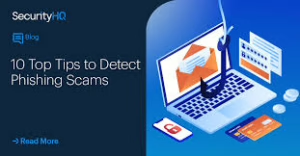
Safeguarding your information is paramount. Ultimately, you hold the key to your personal and financial security. Taking a few proactive steps can significantly enhance the security of your home computer.
First and foremost, always remain vigilant against fraudulent emails and websites that attempt to imitate trusted institutions like Georgia Primary Bank. These phishing attempts can lead you to divulge sensitive information unknowingly.y
Next, ensure you equip your computer with reliable virus protection software. This barrier will help defend against malicious threats lurking in unexpected places. Additionally, exercise caution when downloading files from the internet; not all sources are trustworthy.
Be particularly wary of email attachments, as they might carry harmful malware disguised as innocuous files. Regularly installing system updates is crucial, too; these patches often contain security fixes that protect against vulnerabilities.
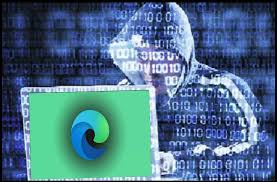
Moreover, clearing your cache, cookies, and browsing history regularly helps eliminate traces of your online activities while enhancing overall performance. Lastly, be discerning about the websites you visit—stick to reputable sites and avoid those that seem suspicious or poorly designed.
By following these tips with diligence and attention, you can enjoy a safer online experience and better protect yourself from potential attacks.
In today’s digital age, banks are prioritising the security of their online services, deploying cutting-edge technology to protect systems and customer interactions. This commitment to security is crucial, especially as more people embrace the convenience of online banking, bill pay, and other electronic services.
One key feature in this protective arsenal is Secure Socket Layer (SSL) encryption. When you access your online banking account, your user code and password are transmitted securely to the bank’s servers using SSL technology. This process encrypts your personal information before it even leaves your computer, making it unreadable to potential eavesdroppers.
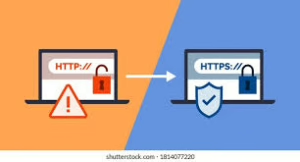
To ensure that you’re connecting securely when logging into your account, always check for two indicators: First, look at the address bar for “https.” The s stands for secure and signifies that encryption is being used; if you see only “http,” you might be at risk. Additionally, many browsers like Mozilla Firefox will change the colour of the URL window when in a secure session.
Another visual cue is the presence of a tiny locked padlock or key icon either next to the website address or in the lower corner of your browser window. If you double-click this icon, it will show you details about the organisation you’ve entered into a secure session with. These features combine to give customers confidence as they navigate their financial transactions online without worry.
Using a secure browser is essential to accessing your information securely. Only browsers equipped with 128-bit encryption technology will be supported, ensuring that your data remains safe. This encryption process is facilitated through Secure Socket Layers (SSL), which employ advanced mathematical algorithms to protect sensitive information from potential threats online.
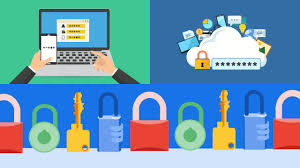
SSL security goes a step further by monitoring the integrity of data during transmission. If SSL detects any alterations—such as data being added or deleted after it has been sent—the connection will automatically terminate. This feature serves as a safeguard against tampering.
Our online banking platform is further fortified by robust firewalls, which consist of both software and hardware components designed to control access and protect our internal networks from external interference.
When logging in, user IDs and passwords are not stored on the Internet for added protection. Our password guidelines also enhance security, allowing only passwords between eight and twelve characters long, making random guessing nearly impossible—with odds exceeding one billion to one!
Additionally, our system tracks login attempts meticulously and will lock an account after three invalid attempts, effectively frustrating unauthorised access efforts. To elevate security further, we utilise Multi-Factor Authentication alongside device verification processes that confirm account details against the unique characteristics of the machine used.

This layered approach includes challenge response questions and dual verification of device and user credentials, creating comprehensive defences against phishing schemes and other cyber threats.
In today’s digital age, safeguarding your sensitive information is more crucial than ever. Start by regularly backing up your files; this not only protects against data loss but also provides peace of mind in case of a cyber incident.
Make it a habit to review your bank statements meticulously each month. This simple step can help you catch unauthorised transactions before they escalate into more significant issues.
To enhance your oversight, monitor all your bank accounts closely and set up account alert messages. These notifications can keep you informed about any suspicious activity or significant changes, allowing for prompt action if necessary.
Be mindful of where you access the internet. To reduce the risk of falling victim to malware, avoid using public devices or unsecured Wi-Fi networks for banking or personal tasks.
Always ensure that the software on your devices is legitimate and regularly updated. Using reputable anti-virus programs adds an essential layer of protection against threats lurking online.
When browsing, trust your instincts. If something seems strange or out of place, don’t proceed without confirmation—contact the organisation involved directly for clarity.
Finally, be diligent when reading emails and SMS messages. Scammers often use clever tactics to trick individuals; taking a moment to analyse unexpected communications can save you from serious harm. Your vigilance is vital in protecting yourself online!
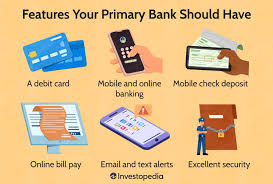
Maxthon
In the modern digital landscape, safeguarding your online banking details is more critical than ever, mainly when using a browser like Maxthon. A strong foundation begins with creating robust passwords for your banking profiles. These should be complex and unique, incorporating uppercase and lowercase letters, numbers, and special symbols.
Avoid easily identifiable information like birthdays or pet names; instead, opt for unpredictable combinations that are hard to guess.
Activating Two-Factor Authentication (2FA) adds another layer of security. You require a verification code sent to your mobile device or email each time you log in, effectively deterring unauthorised access.

Keeping your Maxthon browser updated is equally vital. Always check for updates to ensure you’re running the latest version, as these often include crucial security patches that protect against newly discovered vulnerabilities.
Regularly clearing your browsing data—history, cache files, and cookies—is essential in preventing potential exploitation by hackers.
For heightened privacy during online banking activities, Maxthon’s privacy mode allows users to browse without saving any sensitive data from previous sessions.
Finally, consider adding reputable security extensions or antivirus software designed specifically for online safety. With each precaution taken, you significantly enhance the security of managing sensitive financial transactions in our interconnected world.
